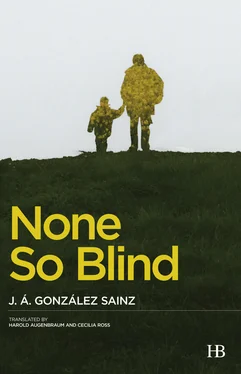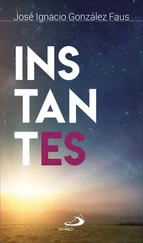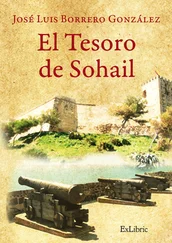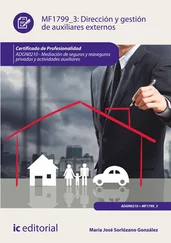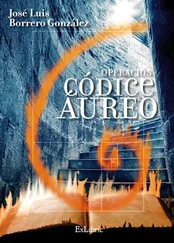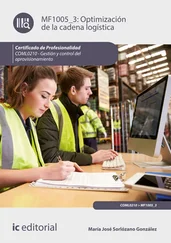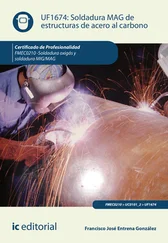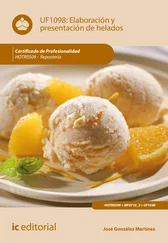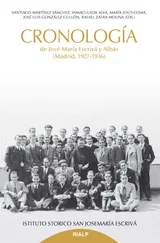José Ángel González Sainz
None So Blind
For José Ramón González García,
Augustín García Simón, and Ramón Aguirre Urruchúa
We have slipped our backbone; we have about decided a man
don’t need a backbone any more; to have one is old-fash-
ioned. But the groove where the backbone used to be is still
there, and the backbone has been kept alive, too, and someday
we’re going to slip back onto it. I don’t know just when nor just
how much of a wrench it will take to teach us, but someday.
WILLIAM FAULKNER
1
It was the first day he’d gone back to doing what some people said he should probably never have stopped doing in the first place, the first day he’d gone back, drawn by the force of something that had held him in thrall for so long, to jumping out of bed in the still-small darkness and making himself, all on his own now, a large, black coffee, and his thick slices of bread and honey, and the first day he’d gone back, in the nascent light of dawn, like so many times before, long ago, when the brightness seemed to light up once more the same things that dusk had left confused and spent and so very, very tired and gave the impression that it would go on lighting them forever, to throwing his worn jacket and his old satchel from twenty years ago over his shoulder and heading off toward the river’s silence and his work in the field.
He was relieved when he realized that the road was the same as it had always been. They hadn’t redone anything yet or built anything in the area, and when he walked along that road, walking as if it were in fact the road that were walking through him, he was infused with a strange sense of calm and a strange feeling of liberation. It must be that what’s permanent, he said to himself, that what will always be the same no matter how many things change, as his father used to say, or as people said his father used to say, is what actually frees you the most. Things that remain the same speak to you, sustain you, and they do it without ego. Although knowing how to listen to them is something else entirely.
But when he got to the field, it had all gone to seed, it was abandoned, godforsaken, he said to himself. Blackberry bushes blocked the path that went down to the work shed and made getting in difficult. The property markers had strayed out of place, and the river seemed to have eaten into part of the property. Clumps of weeds had taken up residence everywhere and seemed to have arranged themselves in strict accordance with the severe dryness of the earth, paradoxically, since they were at the very bank of the river.
Forsaken by God, godforsaken, he repeated several times to himself, perhaps thinking about something more than this piece of land as he gripped the sickle and dug the hoe in to clear the path and get to the doorway, to resituate the property markers, and to begin little by little to bring order to the land. But why would you say godforsaken, when it is we who have forsaken it and let it go to seed, we who cultivate it and improve it and make things grow, and we also who impoverish it and destroy it and let it go to seed, he asked himself. Perhaps it is His hand that puts the hoe in ours to resituate the property markers or make the soil produce, so perhaps it’s also His hand that sometimes gives us a hoe, but other times it’s not a hoe or a shovel or a rake but, on the contrary — and only He knows why — it’s a gun. And if one hand puts something in another hand, if God’s hand puts something in our hands, do God’s eyes put hate and rancor and ridiculous stubbornness in our eyes, as well?
As the afternoon unfolded, the same way it had twenty years ago, the same way, curiously, that it had the very day he ended his almost daily journeys along that road he had walked for what might accurately be termed as long as he could remember, the weather had suddenly gotten stormy. The sky had been impeccably blue, clear as you could ever imagine, but had given way, just as on that other day, to a cottony landscape of ever more threatening clouds. So he hurried and finished gathering everything up, turned the key in the shed’s old, wooden door, which time and lack of care had turned completely gray, and without missing a beat, exhausted as he was, he turned from the shed and went up the path, which was now newly unobstructed and flanked by patches of elder, bisnaga, and danewort, to the road that would take him back to the village.
When he was on the verge of reaching the streets on the outskirts of the village, a bit more or less like on that other day twenty years ago, which was a very different day and yet such a mirror image of this one, a hurricane-force wind began to blow, and all of sudden it swept everything up and sent everything haywire. As if it could no longer bear to have things where they were, the wind began to kick up little whirlwinds of dust and dirt everywhere and every which way; tumbleweeds and gritty particulates, like multiple BB blasts, stuck like tiny needles in his cheeks and forehead, and the dust, the dust everywhere, as if everything had been turned into dust, it got into the corners of his eyes as if to ensure that nothing at all could remain safeguarded from that vortex.
From the outset, pieces of paper and plastic bags began flying through the air along with the grass and the dry leaves the wind was worrying from place to place. You could hear doors slamming inside houses, things falling and banging, glass breaking, and an empty soda can rattling and bouncing and rolling around back and forth, as only emptiness can rattle and roll, seemed to add a metallic hollowness to all the chaos. It would have been difficult to imagine, as it always is, even in the final moments before something throws everything into a frenzy, all the things that could possibly totter, could fall and break, or simply disappear, or shut down in an instant — all the things that could possibly go wrong. Only the plastic bags, inflated and puffy, had a hard time coming back to earth; they were full of the very thing that was sending everything else out of control, and so, molding themselves as fully as possible to that which was scattering everything else, they remained airborne for a long time, buffeted by the whims of the windstorm. They looked like certain people, or certain things, he thought then, as he watched the bags fill up with air and the empty can rattle around, with a sad smile that his tiredness made even sadder.
Then suddenly — there was no one left out on the street — an abrupt fall in the temperature preceded the first isolated drops, giant, fat drops, of a girth so incomprehensibly fat that they pounded into the dust that had piled up on the roads over the course of weeks and weeks of drought with a muted sound, muffled and dull, as if they were smothering something spread out and thin. The worst thing might not be so much what’s happening now, no matter how dreadful that may be — Felipe Díaz Carrión said to himself, thinking not just about end-of-summer storms — but the fact that the particulates and dust are shaken free and get into your eyes and blind you, and then anything can happen, anything.
2
What does this coincidence mean, he had wondered during the entire walk back to his house, and even before then, from the very moment that day when he had begun to sense, just as he had twenty years ago, the storm that was now raging around him; do things mean anything, or do they merely happen and we’re the ones who implore them to say something to us?
You could get from his house on the outskirts of the village to the shed in the field near the river in two different ways. Along the road on the opposite side of the river, which led to a ford where, on normal days, summer days especially, you could wade through the water with no problem, or along the old bridle trail that ran parallel to the river on the same side as his field. His grandfather, as he remembered vividly, and his father, whose name he always followed with may he rest in peace when he mentioned him, and later he himself when he was a child and then a young adult, right up until that equally stormy day twenty years ago when he turned the key in the old, wooden door to return afterward only from time to time in the summer, had all invariably taken the dirt road that went parallel to the river, every time.
Читать дальше
